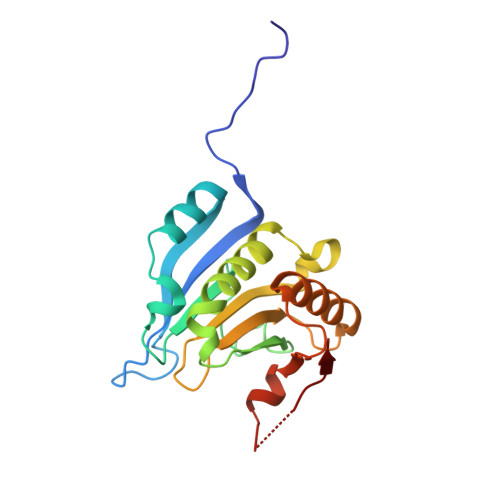Second-Generation Cap Analogue Prodrugs for Targeting Aberrant Eukaryotic Translation Initiation Factor 4E Activity in Cancer.
Cardenas, E.L., O'Rourke, R.L., Menon, A., Vega-Hernandez, G., Meagher, J., Stuckey, J., Garner, A.L.(2025) ACS Med Chem Lett 16: 96-100
- PubMed: 39811141
- DOI: https://doi.org/10.1021/acsmedchemlett.4c00466
- Primary Citation of Related Structures:
9DON - PubMed Abstract:
Dysregulation of translation is a hallmark of cancer that enables rapid changes in cellular protein production to shape oncogenic phenotypes. Translation initiation is governed by the m 7 GpppX cap-binding protein eukaryotic translation initiation factor 4E (eIF4E), the rate-limiting factor of cap-dependent translation initiation. eIF4E is overexpressed in many cancers and drives the production of oncoproteins that promote tumor growth and survival. Accordingly, eIF4E has been established as an attractive albeit challenging therapeutic target. Building upon our previous work of developing cell-permeable cap analogue prodrugs that inhibit eIF4E binding to the m 7 GpppX cap, herein we disclose the design of second-generation cap analogues with alternative N -9-substituted linkers which exhibit anticancer activity in BRAF V600E mutant melanoma cell lines.
Organizational Affiliation:
Department of Medicinal Chemistry, College of Pharmacy, University of Michigan, Ann Arbor, Michigan 48109, United States.


















